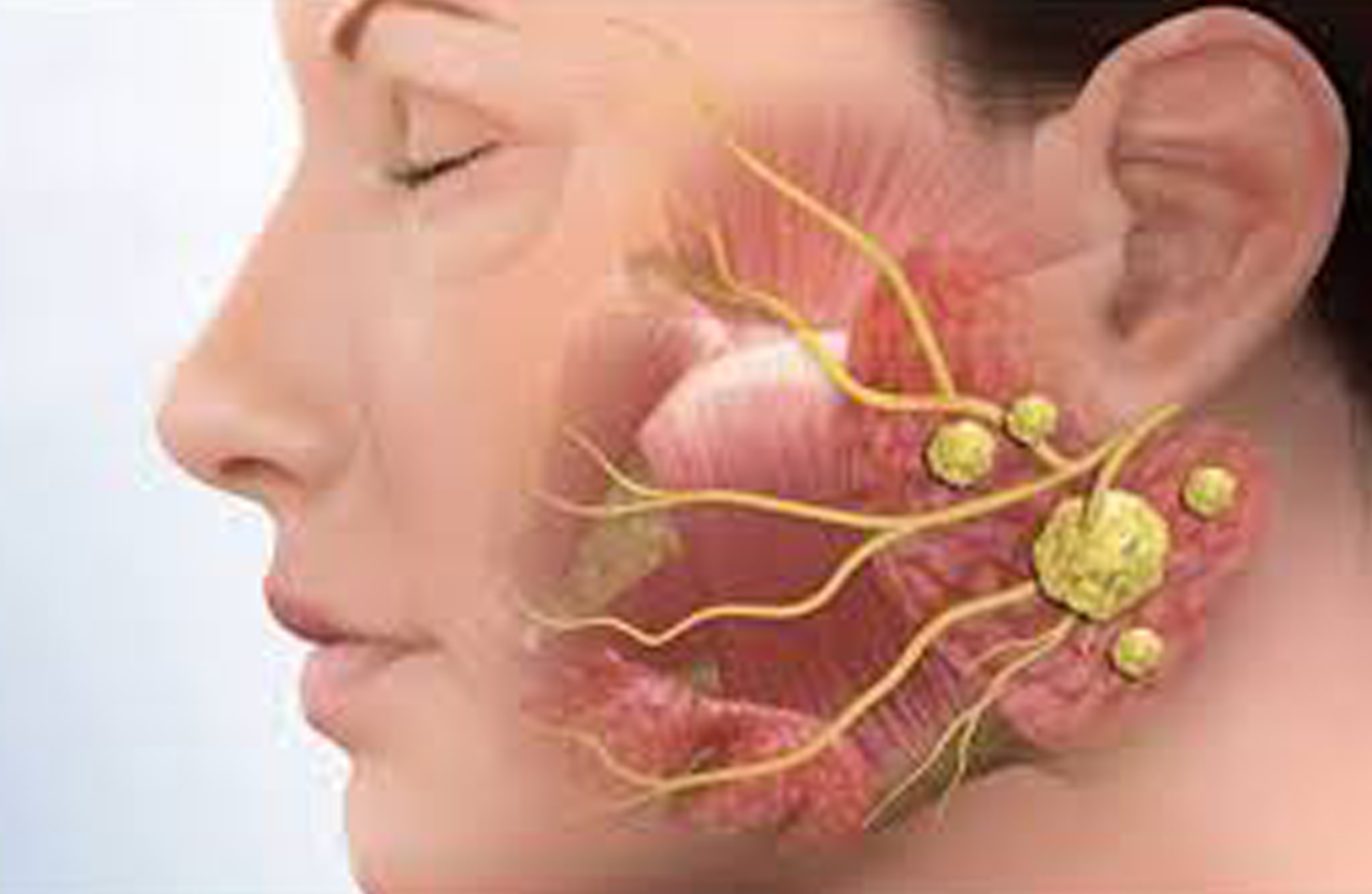
Parotid cancer is a type of cancer that originates in the parotid glands, which are the largest of the salivary glands, located in front of and just below each ear. Here is an overview of parotid cancer, covering its types, symptoms, diagnosis, treatment, and prognosis:
Types of Parotid Cancer
Parotid cancers can be categorized based on the type of cells involved. The most common types include:
• Mucoepidermoid Carcinoma: The most common type of salivary gland cancer, which can vary in aggressiveness.
• Adenoid Cystic Carcinoma: Known for its slow growth but potential to spread to nerves and other tissues.
• Acinic Cell Carcinoma: Generally slow-growing and less likely to spread.
• Adenocarcinoma: A more aggressive type of cancer that originates in glandular tissues.
• Squamous Cell Carcinoma: Often associated with skin cancer that has spread to the salivary glands.
Symptoms:
The symptoms of parotid cancer can vary but may include:
• A lump or swelling near the jaw or in front of the ear.
• Pain in the area of the parotid gland.
• Numbness or weakness in part of the face.
• Difficulty swallowing.
• Persistent pain in the face.
• Asymmetry in the face or changes in facial movement.
Diagnosis
Diagnosing parotid cancer typically involves several steps:
• Physical Examination: A doctor will check for lumps or abnormalities in the parotid region.
• Imaging Tests: Tests such as ultrasound, MRI, or CT scans are used to detect tumors and assess their size and spread.
• Fine Needle Aspiration Biopsy (FNA): A thin needle is used to extract a small sample of cells from the tumor for microscopic examination.
• Histopathological Analysis: Detailed examination of the biopsy sample to determine the type and grade of the cancer.


Treatment
Treatment options for parotid cancer depend on the stage and type of cancer, as well as the patient's overall health:
• Surgery: The primary treatment involves removing the tumor. In some cases, part or all of the parotid gland may be removed. Lymph nodes in the neck may also be removed if cancer has spread.
• Radiation Therapy: Often used after surgery to destroy any remaining cancer cells and reduce the risk of recurrence.
• Chemotherapy: Used less frequently, but may be recommended for advanced or metastatic cancer.
• Targeted Therapy: Involves drugs that specifically target cancer cells without affecting normal cells.
Prognosis
The prognosis for parotid cancer depends on several factors, including the type and stage of cancer, the patient's age and overall health, and how well the cancer responds to treatment. Generally:
• Early-stage cancers have a better prognosis with higher survival rates.
• High-grade or advanced-stage cancers tend to have a poorer prognosis due to their aggressive nature and potential to spread.
Parotid cancer, while relatively rare, requires a multidisciplinary approach for effective diagnosis and treatment. Early detection and personalized treatment plans can significantly improve outcomes and quality of life for affected individuals.